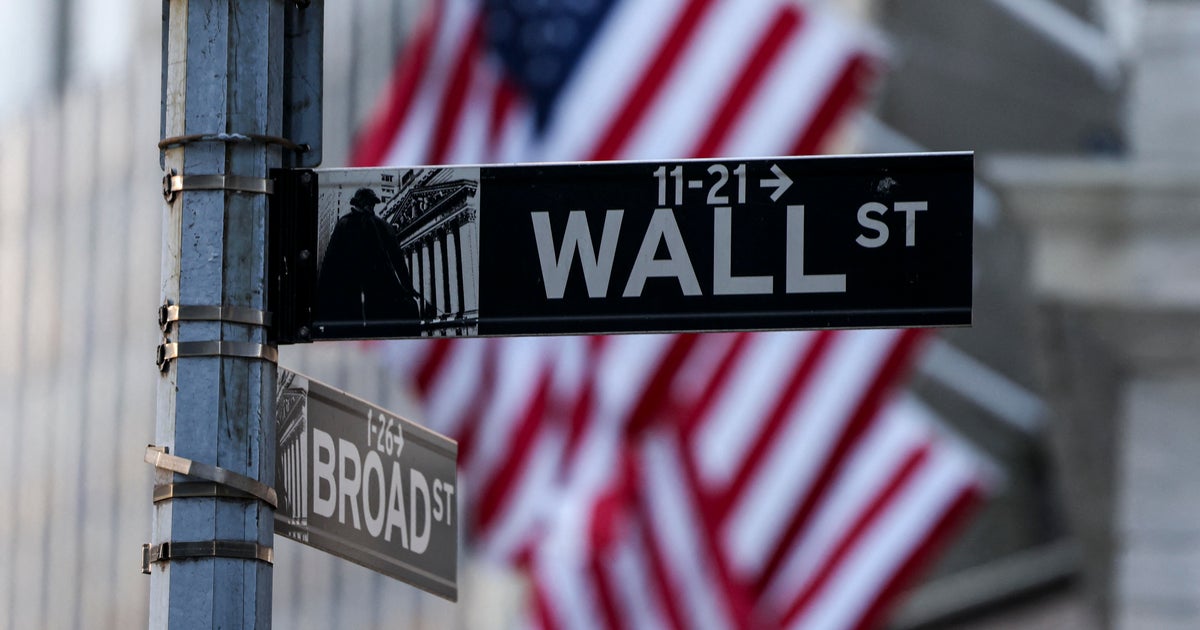U.S. stocks end lower for 3rd straight week after shedding morning gains
Stocks ended lower on Wall Street for the third straight week Friday, shedding all their gains from an early rally that followed the release of the government's latest job market update.
The report, which showed employers slowed their hiring in August, initially put traders in a buying mood, stoking cautious optimism that the Federal Reserve may not need to raise interest rates as aggressively in its ongoing bid to tame inflation.
But the gains faded by mid-afternoon. The S&P 500 fell 33 points to close at 3,934 or 1% lower. The benchmark index had been up 1.3% in the early going.
The Dow Jones Industrial Average swung from a gain of 370 points to a loss of 247. The blue chip index was down 0.8% at 31,410. The Nasdaq composite also flipped into the red, shedding 1.3%. Smaller company stocks also fell, pulling the Russell 2000 index 0.5% lower.
The latest jobs data at least gives traders some hope that a key driver of inflation is cooling. On Friday, the Labor Department reported that the U.S. economy added 315,000 jobs last month, down from 526,000 in July and below the average gain of the previous three months. The unemployment rate also rose to 3.7% from 3.5% in July as more people came off the sidelines to look for jobs.
Average hourly pay jumped 5.2% last month from a year earlier, but slowed slightly from July to August. That's a welcome sign in the inflation fight, as businesses typically pass the cost of higher wages on to their customers through higher prices.
"The downtick in employment growth in August may be a sign that the Federal Reserve's policies are starting to have an impact," Lisa Sturtevant, chief economist at Bright MLS, said in a note.
The lower jobs report could give the central bank reason to more moderately increase interest rates at its next policy meeting later this month — good news for Wall Street, which remains largely focused around expectations for rates.
"Today's jobs report was a step in the right direction, in that the pace of job and wage growth stabilized," said Matt Peron, director of Research at Janus Henderson Investors. "However, we reiterate our caution that we are not out of the woods just yet, as stubbornly high wage gains could keep the Fed on an aggressive path."
More hikes to come
The Fed has already raised interest rates four times this year and is expected to raise short-term rates by another 0.75 percentage points at its next meeting, according to CME Group. But following the latest jobs report, expectations for that three-quarter percentage point hike have fallen to 58% from 75% on Thursday.
Market watchers such as David Kelly, chief global strategist at J.P. Morgan Asset Management, said they still expect the central bank to raise rates later this month by another 0.75 percentage points.
Signs of some slack in the labor market as well as more welcome news on falling gas prices "increase the odds that the economy could gradually return to milder inflation over the course of the next year without falling into recession," Kelly said.
The market's pullback was widespread Friday, with more than 80% of the stocks in the S&P 500 falling. Technology stocks, which weighed on the market heavily most of this week, were a big drag on the index again. Microsoft fell 1.7%.
Health care and communication stocks also helped pull the market lower. UnitedHealth slid 1% and Meta Platforms dropped 3.2%.
Energy stocks were a bright spot, rising as the price of U.S. crude oil climbed 1%. Marathon Oil added 2.7%.
Treasury yields, which have been rising along with expectations for higher interest rates, fell broadly. The yield on the 10-year Treasury, which influences interest rates on mortgages and other consumer loans, slipped to 3.20% from 3.26% late Thursday. The two-year Treasury yield, which tends to track expectations for Fed action, fell to 3.41% from 3.52%.
The benchmark S&P 500 ended August with a 4.2% loss after surging the previous month on expectations the Fed might ease off rate hikes due to signs U.S. economic activity was cooling and inflation might be leveling off.
Stocks entered a skid last week after Chair Jerome Powell said the Fed needs to keep rates elevated enough "for some time" to slow the economy. The only question for many investors is how much and when the next hike will be.
The latest jobs data comes a day after the Labor Department reported unemployment claims fell last week in another sign of a strong job market. It said earlier this week there were two jobs for every unemployed person in July.







